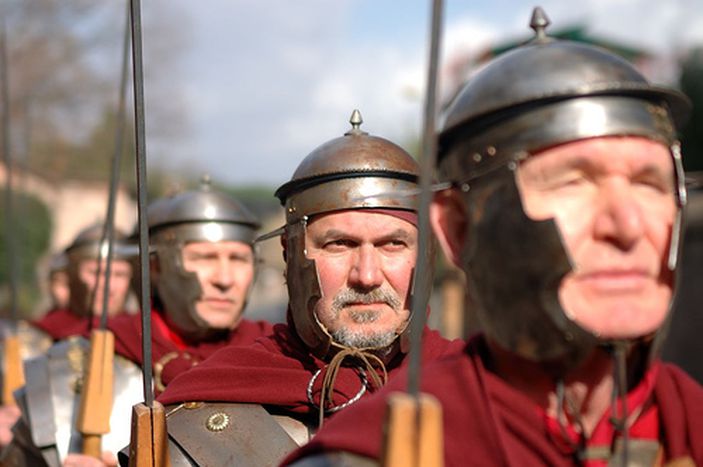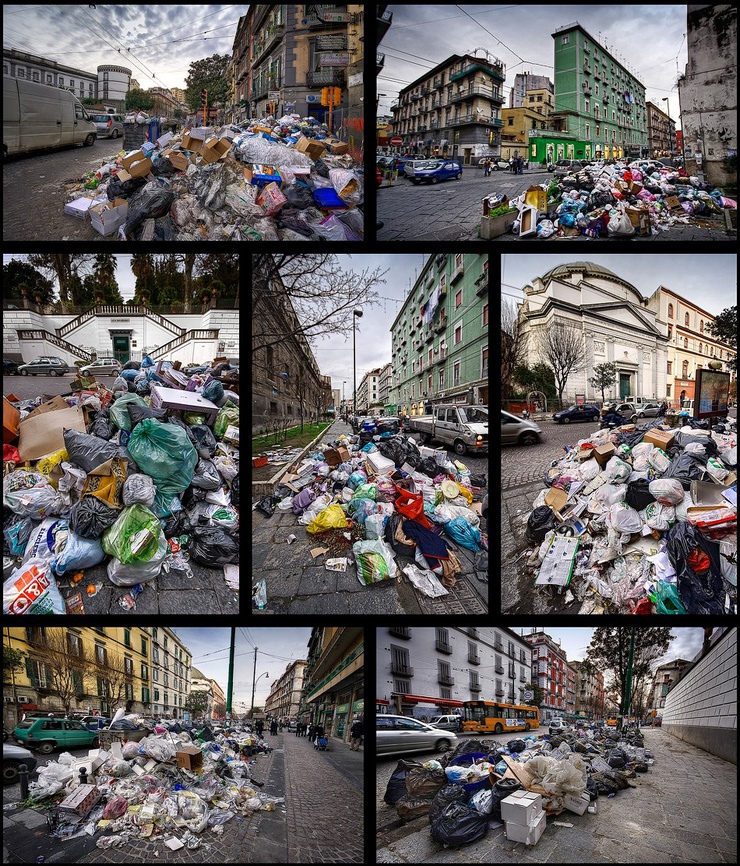
Italy: operation ‘soldiers in the city’
Published on
Translation by:
Mary MaistrelloCan the army control the streets alongside the police? The situation is being debated in today’s insecure Italy
The likely presence of the army in Naples has been discussed for years. The last person who raised the topic was then-prime minister Romano Prodi in January 2008. Today, current prime minister Silvio Berlusconi has made the solution to the ‘garbage problem’ a matter of personal honour and a top priority. A few weeks into his ‘new’ government, measures were put into place which gave the army control of the dumps without interference from anyone.
From the barracks to the dumps

The first resolution of Prodi’s government elicited strong protests. But Berlusconi’s has met with more approval, as the situation had deteriorated; during the summer, the heat and muggy weather can turn heaps of rubbish in hotbeds for infections. The Camorra, a Neapolitan mafia organisation, also need to be taken into consideration, as they usually end up managing the dumps.
Defence minister Ignazio La Russa has assured that operation ‘soldiers in the city’ will be launched between the end of July and the beginning of August, as soon as the decree has been approved by law. The operation will involve about 3, 000 military personnel who will control the streets; La Russa does not exclude the role of the army in external civilian operations in the future. For now, the task seems clear: to join forces with the police. As in the case of southern coastal city Bari, the government’s security plan also predicts deploying military personnel in civilian clothes to patrol the centres of temporary residence (Cpt) and ‘travellers sites’ - in other words, immigrants.
Armies in Europe
Of the few precedents in the deployment of the army in this role in recent times, one concerns Italy directly. During the worst offensive of the mafia against the state in 1992, operation ‘Vespri Siciliani’ saw the army sent to Sicily to ‘peacefully invade the island’. Another esteemed precedent was the use of the army in Spain in 2003, following the eco-disaster of the sinking of the tanker Prestige off the Galician coast. Both cases were termed as emergencies, and the armies duly returned to their barracks.
In France, the only person to consider using the army in the streets was French far-right nationalist politician Jean Marie Le Pen during the 2005 riots in the French suburbs. The proposal was not welcomed, but the Etat d’urgence (‘state of emergency’) was restored. The law was proclaimed in 1955 to maintain public order during the Algerian War.
But what is being announced now in Italy is the opposite. The army is not answering to a particular event, but to a generalised sense of insecurity in the population, taking on a role that belongs to the police. Nevertheless, there is strong opposition to the government’s proposal. The opposition has made claims of populism and publicity stunts: 3, 000 men stationed all over the country will not solve the problem. Even the syndicates are speaking up: the police are short of means and manpower, and resources used for the army could have been invested better on forces already stationed in the field. Policies aside, the use of the army in a situation of ‘normal emergency’ is baffling because it creates a precedent. In this particular case however, as the number of soldiers involved is so small, one can’t credibly speak of the ‘militarisation of democracy.’
In the light of other provisions from Berlusconi’s government, such as zero tolerance against illegal immigration, registration of ethnic Roma, the reintroduction of constitutional reform and a spotlight on the subject of legality, this looks like a move intended more than anything as a piece of propaganda designed to lower tension levels in an insecure Italy, a country in need of strong answers.
Translated from Operazione “soldati in città”



